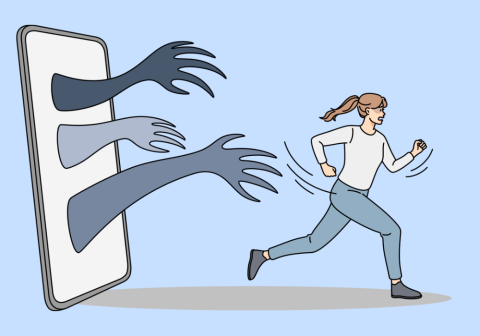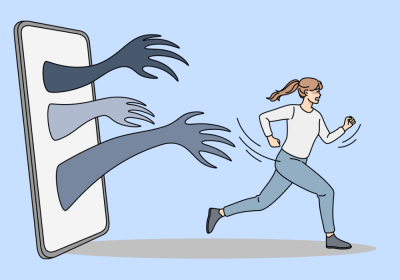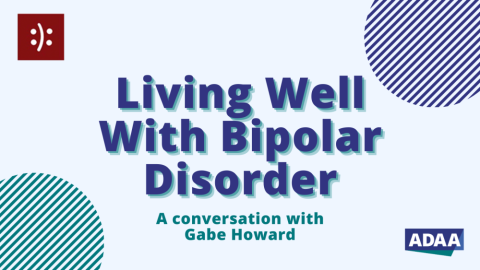
Women have an increased risk for depression as they transition to menopause. The time period before menopause is "perimenopause" and it represents the passage from reproductive to non-reproductive life. Research has indicated that depression is more likely to occur before menopause, known as "perimenopause" while women experience a fluctuation of hormones. Estrogen levels gradually declining may bring on depression.
Click here to read more about depression.
Signs and Symptoms of Depression
- Two or more weeks of depressed mood
- Decreased interest or pleasure in activities
- Change in appetite
- Change in sleep patterns
- Fatigue or loss of energy
- Difficulty concentrating
- Excessive feelings of guilt or worthlessness
- Extreme restlessness and irritability
- Thoughts of suicide
Treatment
Depression is treatable at any stage of life. For perimenopausal mood swings, some experts recommend a low-dose oral contraceptive (OC) to help stablize hormone levels1.
ADAA Resources
To learn more in-depth about perimenopause and treatments, check out ADAA's Patient Guide to Mood and Anxiety Disorders.
Videos
Blogs
- Women and Depression
- Diverse Women in Clinical Trials: Making a Difference
- Be There for Women Veterans in Your Community
Personal Stories of Triumph: Depression
- My Cure
- "Just Perfect"
- I’m a Comedian, and I’m Depressed
- Not Really a Rebel
- How Depression Changed His Life
- Abigail's Story
Webinars
- Using Behavioral Activation Treatment to Treat Perinatal Mood Disorders - ADAA professional webinar
Other Resources
- Mental Health, Depression, and Menopause- Healthline.com
- Depression in Women: 5 Things You Should Know- NIMH
- Depression in Women - HelpGuide.org
- Depression in Women: Understanding the gender gap - Mayo Clinic
- Depression in Women - Mental Health America
- Depression - womenshealth.gov
Trending Articles
- Mood Disorders and Teenage Girls
- When the Arrival of Menopause Brings Symptoms of Depression
- Anxiety Among Middle-Aged Women Could Be Reflected In Waist-To-Height Ratio
- How Late-life Anxiety Testing Can Prevent Mental Health Misdiagnosis
- Hormone Replacement Therapy May Prevent Depression in Menopause
- Self-guided Course Helps Women manage menopause symptoms at work
1. Depression & Menopause. (2018). Menopause. The North American Menopause Society.















